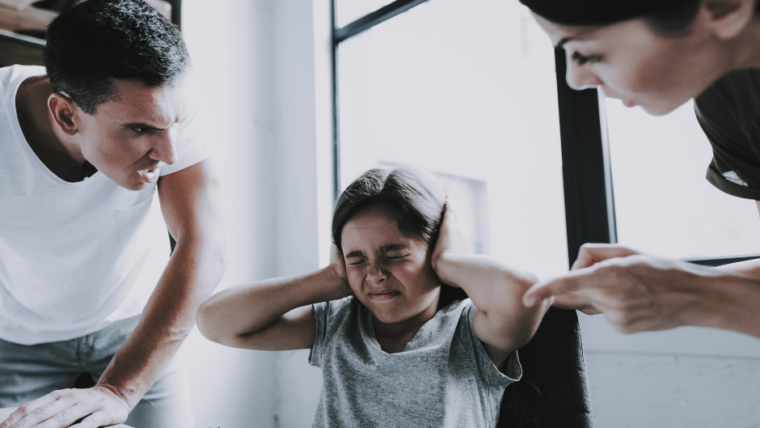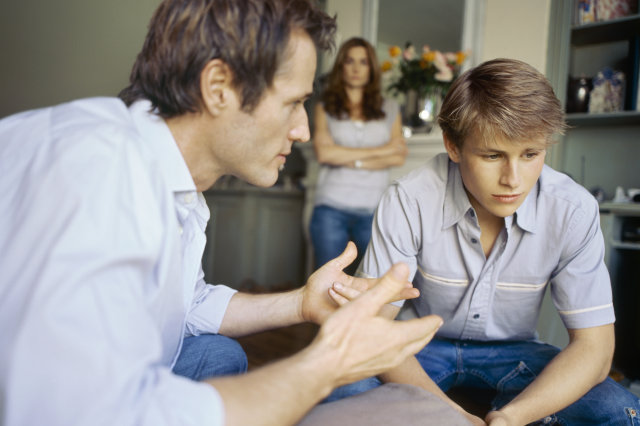
Every parent wants to take care of their child. But unknowingly, fathers and mothers can apply helicopter parenting. The term that describes parenting as ‘driving’ and monitoring a child’s life has been quite popular.
What is helicopter parenting?
According to the Cambridge Dictionary, helicopter parents are parents who control and interfere in their children’s lives.
Because they interfere too much, parents with this parenting style are like helicopters that keep spinning overhead to monitor their child’s every move.
The first introduced helicopter parenting in 1969 in a book entitled “Between Parent & Teenager.” Teenagers liken their mother to a monitor like a helicopter in the book.
Helicopter parenting tends to dictate that a child should act to overprotect the child from adversity or failure.
Parents can unknowingly do this parenting because they have good intentions, namely wanting to give the best for their child and don’t want him to feel like a failure.
However, helicopter parenting tends to interfere in children’s various affairs.
Your little one may already be able to do and finish it himself.
Some examples of helicopter parenting that parents do are as follows.
- Determine the child’s education major even though he does not like it.
Parents contact the teacher or lecturer to protest when your child’s grades are bad. - Get involved if there are problems with friends or work.
“Helicopter parenting does not match the main goal of parenting to make children able to complete various adult tasks,” explains psychologist Michael Ungar quoting Psychology Today.
Ungar also believes that training children to make their own decisions is far more important than letting them depend on their parents to solve their problems.
Adverse effects of helicopter parenting on children

If you are not careful, this one parenting style can harm the child’s psychology. Here are the negative effects of helicopter parenting on children for more details.
1. Vulnerable to depression
Research published in the Journal Of Child And Family Studies examined adults raised by helicopter parenting in Korea. The researchers involved 562 new adults (19-34 years old) as respondents with various backgrounds, such as students, unemployed, and unmarried.
In this study, respondents at least still have one parent who is still alive. As a result, children with helicopter parenting are directly related to the most likely to experience symptoms of depression.
Children with this parenting style will feel a higher pressure on their parent’s expectations of their careers.
2. Do not let the child grow
Helicopter parenting tends to be challenging in solving problems. The reason is that children have low self-confidence and are more afraid of failure.
The more parents interfere in their children’s responsibilities, the less confidence they have in their abilities.
Quoting to Indiana University, helicopter parents tend to save children if there are signs of disappointment or difficulty.
Along with children’s growth, helicopter parenting can also impact social life, education, and even career as an adult.
3. Children do not have coping skills.
Quoting from Good Therapy, coping skills are a person’s skills to deal with problems and feelings of disappointment or failure.
Helicopter parenting is too helpful for children so that they are never wrong or experience failure, which can hinder the development of coping skills.
As a result, children are not used to overcoming problems or facing failure. They also never learn how to solve the problem.
4. Decreased self-confidence of children
The attitude of parents who are too interfering when the child has entered the age of adolescence will cause the child to become less confident in getting along with children his age.
It will also make it more difficult for him to get along and close off even as he matures. Self-confidence is something that children can only get when they depend on their abilities.
This ability alone is in making decisions and accepting the consequences of the problems he faces.
Positive effects of helicopter parenting
Helicopter parenting can still have pros and cons regarding its negative and positive impacts. Research published in Frontiers In Psychology shows that helicopter parenting isn’t all bad.
From this study, it shows that there are positive sides to children from parents with helicopter parenting:
- arrive on time,
- finish homework,
- able to prepare something well.
Parents with helicopter parenting know very well and understand who their children hang out with and their school achievements.
Research in the Journal Of Child And Family Studies also shows things that are not much different. The Journal of Child and Family Studies examined helicopter-parented adults in Korea. The study involved 562 new adults (19-34 years old) as students, unemployed, and unmarried.
Helicopter parenting indirectly makes children have better psychology and feel higher parental affection. In the context of East Asia, you can look at helicopter parenting from two sides, depending on how parents treat their children.
How do prevent parents from being trapped in helicopter parenting?

Worrying too much and interfering in your child’s life is not a wise way to bond with your child. Here are some things parents can do to avoid helicopter parenting.
1. Let the child try according to his ability.
Along with growth, children experience gradual development in doing various things.
Therefore, let children learn to handle things and responsibilities independently to be more independent and develop abilities in living life.
In addition, parents should let their children make decisions and accept the consequences for themselves. With a note, these consequences do not endanger the health and safety of children.
2. Avoid making children anxious
It’s natural for parents to feel anxious about their children, but avoid making your children more worried so they don’t get caught in the parenting helicopter.
Avoid worrying too much and making things seem worse than they are.
Conditions make children confused and easily anxious because of the negative response of parents to a problem. Deal with difficulties with your child by providing a more positive response without making your child feel nervous.
3. Respect the child’s opinion
Forcing parental opinions on children can cause them not to have a stand with their views. Therefore, understand it as something positive if children have different ideas from parents. It is not following the child’s goodness. Try to talk to him and understand why the child thinks so.
Helicopter parenting occurs when parents want to keep their children healthy and growing.
However, if you are not careful, this parenting can harm the development of teenagers. Keep giving space for children to decide for themselves while parents observe from afar. There is no need to be too controlling because children learn to understand themselves.



